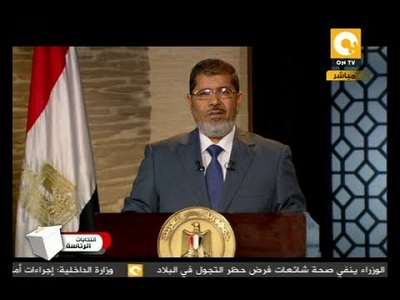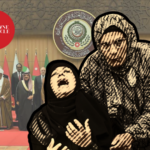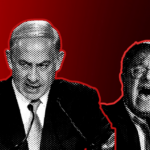Egypt’s Gaza Policy: Time for Change is Now

Morsi is expected to part away with Mubarak\'s notorious policies towards Palestinians.
By Ramzy Baroud
If the new Egyptian leadership thinks it is possible to achieve lasting reconciliation between rival Palestinian factions Hamas and Fatah within the current political climate, it is likely to be disappointed. In the case of Gaza, the government of Mohamed Morsi should in fact pursue sensible policies free from the protracted and complex factional divide. If it subsists in its indecision, Israel and suspect extremist elements in the Sinai will likely intensify their efforts at derailing Egypt’s foreign policy agenda.
Palestinian factional division is unfortunate, but once placed within proper political context, it is fathomable. Both Fatah and Hamas are stuck in a power-struggle that is fed and sustained by regional and international parties.
Fatah, which controls the Palestinian Authority (PA) in the West Bank, is financially and politically bankrupt, and its will is dictated by and hostage to Israeli-US decisions.
On the other hand, Hamas, which is fully aware of Fatah’s precarious position, is hardly immune to the region’s shifting political tides, pressures and financial manipulation.
Since the 2006 Hamas victory of the democratic elections in the Occupied Territories, regional and international players have heavily invested in preventing a major shift in Palestinian politics that could possibly lead to unity and reconciliation. Using political arm-twisting, financial threats and plots aimed at destabilizing and eventually overthrowing the elected Hamas government, the US, Israel, and some Arab parties used all of their creative juices to keep Palestinians apart. National unity in the occupied territories will likely lead to the reactivation of the Palestine Liberation Organization (PLO), thus allowing Palestinians to speak in one voice and enact one common strategy. For Israel, its western and regional allies, such a possibility was and remains too sinister to entertain. In 2007, the official divide morphed into a mini-civil war, making the division not merely political, but geographic, with all sorts of peculiar dimensions. While unity between Hamas and Fatah is unachievable within the current political power plays, Palestinian unity that would redefine national priorities beyond ideology, clan and politics is still possible. Egypt too can help engender that process, once it is initiated by Palestinians themselves.
For the time being, each party is trying to extend the current political transition, hoping that the revolutionary influx, political mayhem and bloody conflicts throughout the Middle East region will yield a favorable political environment once it is all settled. Hamas in particular was quick to capitalize on the new political equation that is increasingly defining Egyptian politics. After all, Egypt’s Muslim Brotherhood party was the principal root out from which Hamas sprung.
But politics are never that straight forward. Egypt’s new President Mohamed Morsi is not alone in redrawing the roadmap of his country’s foreign policy. With the US, international western financial institutions, and various Arab countries making generous offers in hopes to buy shares in Egypt’s new political assets, Morsi is wary of reaching out to Hamas in ways that could arouse suspicion.
The oddity is that most of Egypt’s new generous supporters are in fact the ones who sustained the rule of former Egyptian President Hosni Mubarak. One of Mubarak’s main tasks was of course, to keep Hamas at bay and Gaza besieged. His government was a close ally to President Mahmoud Abbas. The then Egyptian intelligence chief, Omar Suleiman, was closely linked to Israeli, western and various intelligence agencies. He was notorious in his incessant attempts at isolating Gaza in every possible way. The reverberations from the January 25, 2011 revolution are yet to be felt throughout the intricate intelligence, military and political infrastructure that ruled Egypt for decades.
The August 5, 2012 attack on an Egyptian military post in the Sinai which left 17 soldiers dead, was a reminder of how politically engendered security chaos is readily and ruthlessly available to distract from any attempts at mending the Palestinian-Egyptian rift. It is no accident that Sinai attacks are timed with impressive political precision. For example, a day or so before or after the arrival of a high-level Hamas delegation in Cairo. While Abbas is openly frustrated by repeated official Hamas visits to Egypt, Hamas is discouraged by the fact that trips to Cairo by its exiled leadership under Khaled Meshaal or the Gazan government under Ismail Haniyeh, are yet to translate into an Egyptian commitment to end the siege on Gaza. Hamas wants to replace a massive network of tunnels – Gaza’s main economic lifeline – dugout under the Egypt-Gaza border, with an economically viable alternative such as a free-trade zone. Fatah is worried by the political significance of Hamas’ maneuvers, arguing that such a move would entail recognition of Hamas as a legitimate Palestinian representative. This is a post that Fatah has long reserved for itself through its dominance of the PLO.
Morsi’s government is expected to part away with Mubarak’s notorious policies towards Palestinians. But it still lacks the experience to negotiate a clear foreign policy path in such a multifaceted milieu. It is caught in a bind, and language emanating from Egyptian officials for the need to achieve elusive Palestinian unity first, is a rehash of the Mubarak regime’s language. The status quo is likely to prevail if Egypt doesn’t make a decisive move to break away and forever end the siege on Gaza, motivated by Gaza’s urgent humanitarian needs and compelled by a truly independent foreign policy agenda. A continued siege on Gaza will stretch the state of instability under which Gaza and the Sinai have subsisted for years. This instability is also most inviting to those who prompt chaos in order to achieve political ends.
The contemptible matrix within which Palestinian factional politics operates is a reminder of Palestinian political dependency through most of the 1950’s and 60’s, prior to the rise of the PLO under a Palestinian leadership. The achievement of those decades is being quickly squandered as angry faction spokespersons battle it out on television screens to the embarrassment of millions of Palestinians the world over. However, Egypt doesn’t have to be held hostage to competing factional, regional and international agendas. Its actions or inaction is likely to affect the fate of 1.7 million Palestinians in Gaza, regardless of their factional leanings. Palestinians in Gaza, who suffered during the regime of Mubarak and who celebrated the triumph of Egypt’s revolution en masse, don’t expect charity or short-term solutions.
Short-term solutions to the crisis cannot sustain an impoverished area declared by the UN to be uninhabitable by the year 2020 and its water undrinkable by the year 2016. Gaza’s crisis is urgent and Egypt holds a primary key to its resolution. By giving Gaza a lasting lifeline and denying suspect elements from using the unresolved issue to score political points, the government of Mohamed Morsi would take a major first step towards constructing an assertive Egyptian foreign policy and ushering the return of the country to its leadership position of yesteryear.
– Ramzy Baroud (www.ramzybaroud.net) is an internationally syndicated columnist and the editor of PalestineChronicle.com. His latest book is My Father Was a Freedom Fighter: Gaza’s Untold Story (Pluto Press, London.)










































0 Comments